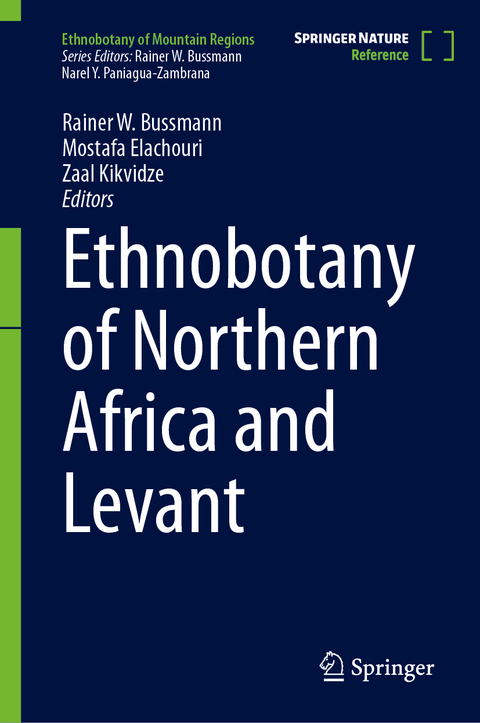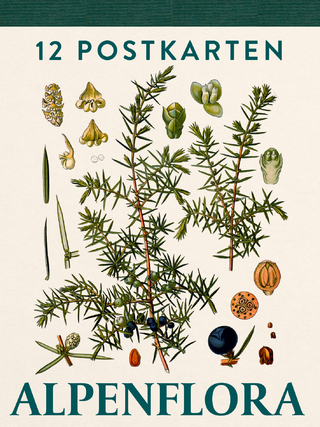
Ethnobotany of Northern Africa and Levant
Springer International Publishing
978-3-031-39794-3 (ISBN)
The field (and thus the market) of ethnobotany and ethnopharmacology has grown considerably in recent years. Student interest is on the rise, attendance at professional conferences has grown steadily, and the number of professionals calling themselves ethnobotanists has increased significantly. Various societies of such professionals include the Society for Economic Botany, the International Society of Ethnopharmacology, the Society of Ethnobiology, the International Society for Ethnobiology, and many regional and national societies in the field that currently have thousands of members. Growth has been most robust in BRIC countries.
The objective of this new MRW on Ethnobotany of Mountain Regions is to take advantage of the increasing international interest and scholarship in the field of mountain research. We anticipate including the best and latest research on a full range of descriptive, methodological, theoretical, and applied research on the most important plants for each region. Each contribution will be scientifically rigorous and contribute to the overall field of study.
lt;p>Prof. Dr. Bussmann earned his M.Sc. (Diploma) in Biology at Universität Tübingen, in 1993 and his doctorate at Universität Bayreuth in 1994. He is an ethnobotanist and vegetation ecologist, and currently Head of the Department of Botany at the State Museum of Natural History in Karlsruhe, Germany, and Full Professor of Ehnobotany at Ilia State University. Before Dr. Bussmann was director of William L. Brown Center at Missouri Botanical Garden and held appointments as Research Fellow in Geography and the Environment at University of Texas at Austin, as Associate Professor of Botany and Scientific Director of Harold Lyon Arboretum at University of Hawaii, and at University of Bayreuth from 1994 to 2003. His work focuses on ethnobotanical research, and the preservation of traditional knowledge, in mountain regions. He has authored over 400 peer reviewed papers, over 1300 peer reviewed book chapters, and authored or edited 38 books.
Prof. Dr. Zaal Kikvidze graduated in 1978 from Tbilisi State University (Georgia). He worked as a researcher in the National Academy of Sciences of Georgia and in the Institute of Teachers' Training of Georgia and later graduated in the Certificate Course in Environmental Education at Jordanhill College, Strathclyde University, Glasgow, Scotland, UK. In 1993 he defended his Doctor of Science (Habil.) thesis. Dr. Kikvidze worked as Associate Researcher in Chiba University (Japan), as Ramon-y-Cajal Fellow in the Consejo Superior de las Investigaciones Científicas (Spain), and Associate Professor of the University of Tokyo (Japan). The major lines of his research are plant community ecology, species diversity and geographical distributions on ecological gradients, rules of species coexistence and interactions among organisms, environmental education, ethno-ecology, and socio-ecology. In 2012 he became Professor of Ecology and 2014 Director of the Institute of Ethnobiology and Socioecology at Ilia State University.
Prof. Dr. Mostafa Elachouri is Professor at Mohammed first University, Oujda, Morroco, Department of Biology, laboratory of Physiology, Genetics and Ethnopharmacology. He obtained his BSc from University Mohammed V. Rabat (Morocco) in 1980. He continued his studies in Strasbourg-France, for his MSc degree. In 1985 Professor Elachouri Mostafa obtained his DSc at Luis Pasteur University of Strasbourg-France under the supervision of Professor J.A. Hoffman (Nobel Prize in Medicine 2011). In 1997 he obtained PhD in Zoology from Mons-Hainaut University in Mons-Belgium. His main area of interest focuses on Pharmacology and Toxicology, Biomedical Sciences, and Environmental Sciences. His area of expertise includes Ethnopharmacology, Ethnobotany, Ethnomedicine, Toxicology, Environmental sciences, Medicinal and Aromatic Plants Taxonomy, Vernacular names, Medicinal and Aromatic Plants Healthcare, Traditional Medicine, Toxic Plants, and Pesticides. He has published wide range of peer reviewed research articles and book chapters and edited several books.
Country Profiles.- Northern Africa and Levant The Region.- Profile of Ethnobotanical Studies in Algeria, Since the Beginning (1990).- Three Decades of Ethnobotany in Morocco (From 1991 to 2021).- A Review on Ethnobotany in Egypt.- etc.- Plant Profiles.- Acacia cyclops.- Adenocarpus bacquei.- Adiantum capillus-veneris.- Agave americana.- etc.
| Erscheint lt. Verlag | 16.11.2024 |
|---|---|
| Reihe/Serie | Ethnobotany of Mountain Regions |
| Zusatzinfo | XXXVII, 2237 p. 1494 illus., 506 illus. in color. In 3 volumes, not available separately. |
| Verlagsort | Cham |
| Sprache | englisch |
| Maße | 155 x 235 mm |
| Themenwelt | Naturwissenschaften ► Biologie ► Botanik |
| Naturwissenschaften ► Biologie ► Genetik / Molekularbiologie | |
| Weitere Fachgebiete ► Land- / Forstwirtschaft / Fischerei | |
| Schlagworte | biogeography • Breeding • Development • ethnobotany • Pathology • Systematics • Taxonomy |
| ISBN-10 | 3-031-39794-0 / 3031397940 |
| ISBN-13 | 978-3-031-39794-3 / 9783031397943 |
| Zustand | Neuware |
| Informationen gemäß Produktsicherheitsverordnung (GPSR) | |
| Haben Sie eine Frage zum Produkt? |
aus dem Bereich
